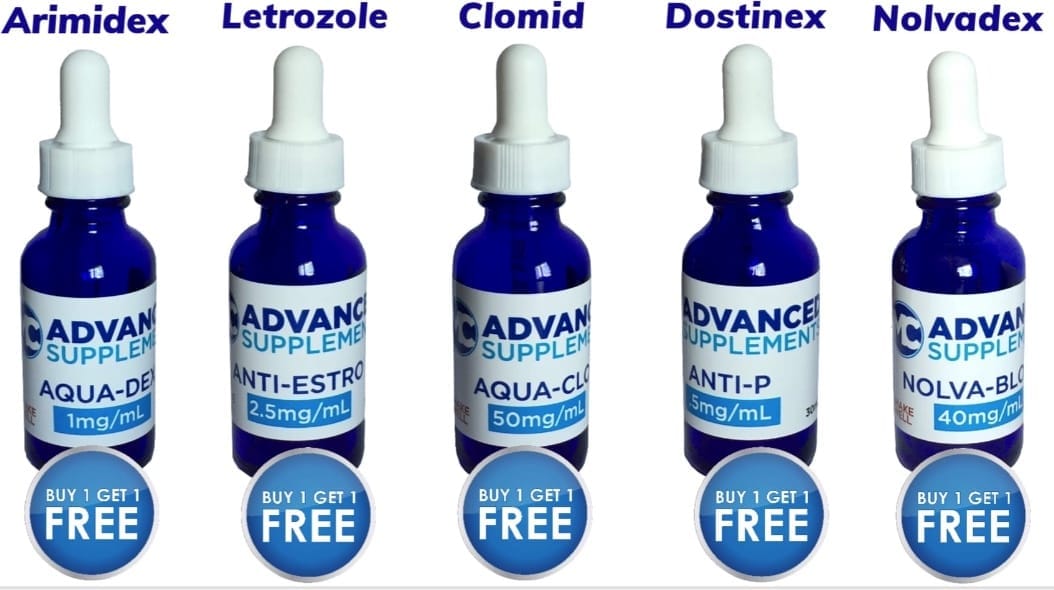Tag: testosterone
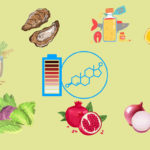
Best Foods to Boost Testosterone
Testosterone one of the key male sex hormones that is required for so many bodily processes, including sexual desire and energy levels. While numerous elements might contribute to a drop in testosterone, age is one of the most prevalent causes. A few additional factors that influence it are nutrition and, in some cases, underlying medical…
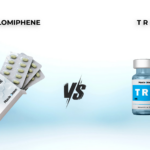
Enclomiphene vs TRT – Which One Is Better?
As men age, testosterone levels naturally decline, often leading to a myriad of symptoms ranging from decreased libido and energy levels to mood disturbances and reduced muscle mass. Traditionally, TRT has been the primary solution, involving the direct supplementation of testosterone to restore hormonal balance. Yet, amidst its widespread use, questions persist about potential long-term…
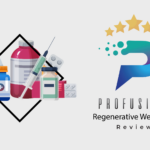
Profusions Wellness Review – Worth the Price?
Customers want quality peptides. Dependable TRT. Something (and someone) that knows how to help them. Someone who is going to treat them better than some online business, and more like a person. Profusions Wellness stands as an online clinic offering peptides, TRT, and other goodies to those in need. In the world of health wellness,…
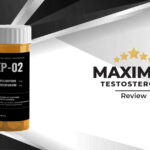
Maximus Tribe Review
Are you experiencing low Testosterone? Are your Testosterone levels in a worse state than, well, the State? Well, fear not, there are plenty of Testosterone Replacement Therapy options available for you to get your life back with. But in order to get TRT, you need a trusty supplier. Someone who knows what they’re doing. Someone…
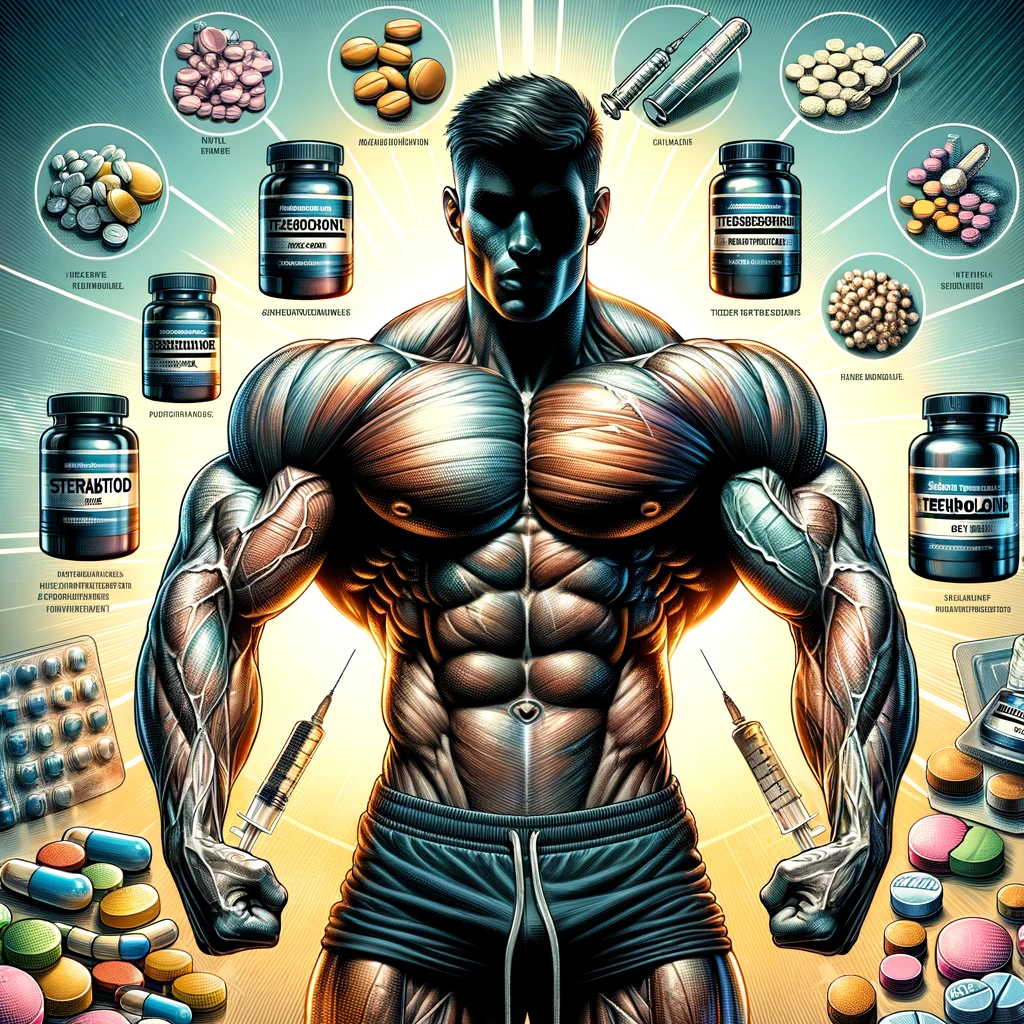
Steroids for Muscle Growth: A Comprehensive Guide
Steroids for Muscle Growth: The Ultimate Guide to Enhancing Physique and Performance Introduction The pursuit of muscle growth drives many to explore the world of anabolic steroids, substances known for their potent ability to enhance physique and performance. This comprehensive guide dives deep into the various steroids available, their specific uses, benefits, potential risks, and…
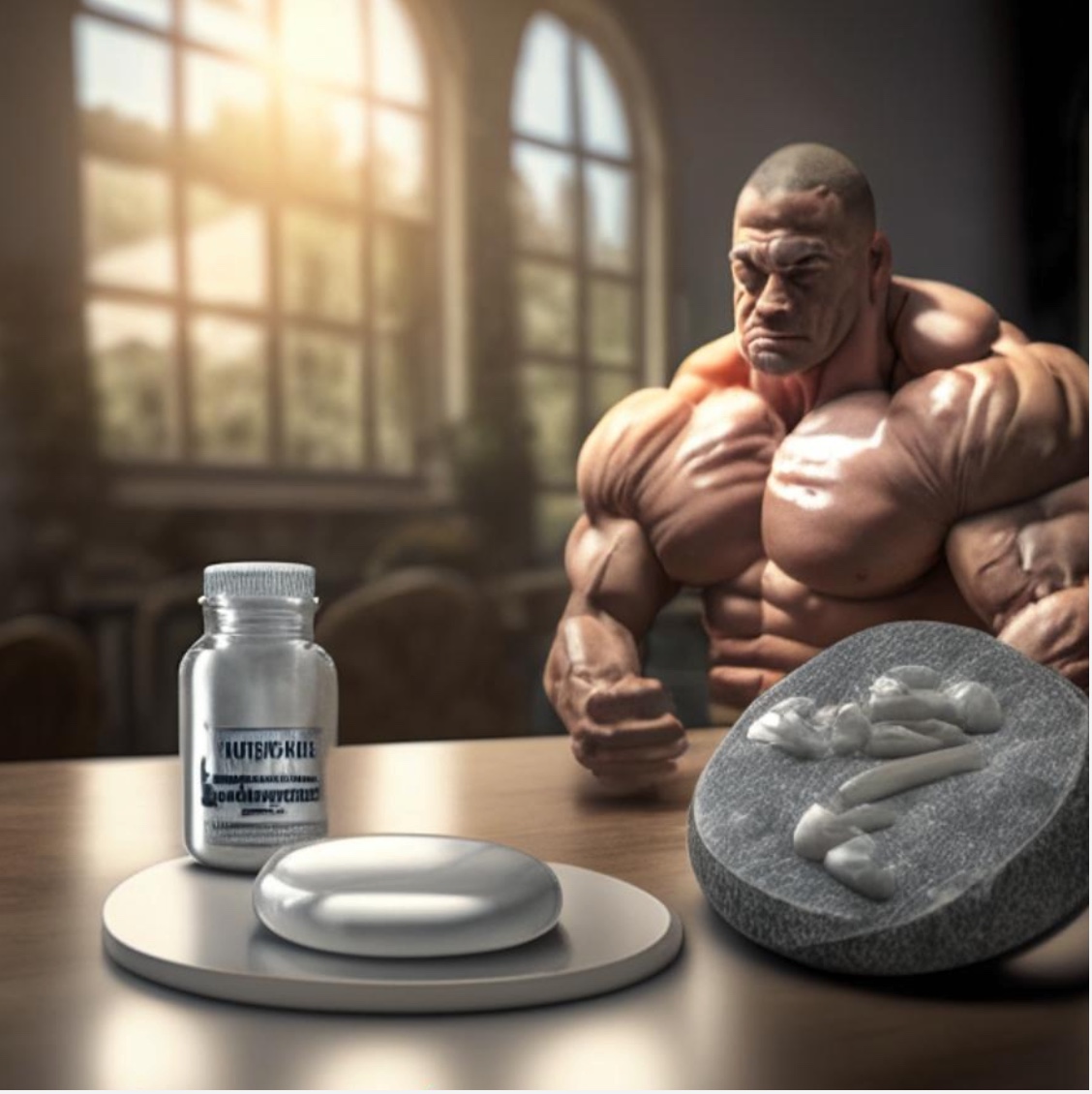
Tbol
Turinabol, commonly known as Tbol, is a popular choice among bodybuilders seeking enhanced muscle gains and improved performance. This article provides valuable insights into dosages, durations, and recommended steroid stacks for beginners, intermediates, and advanced users. Discover the optimal approach to maximizing the benefits of Tbol while prioritizing your health and safety.

EQUIPOISE STEROID
Equipoise, also known as Boldenone, is a popular steroid among bodybuilders seeking impressive muscle gains. In this article, we explore recommended dosages for beginners, intermediates, and advanced bodybuilders. Additionally, we delve into the use of Equipoise in combination with other popular steroids, uncovering the potential for enhanced results and a well-rounded physique. Whether you’re just starting your bodybuilding journey or looking to take it to the next level, Equipoise could be the key to unlocking your true potential.
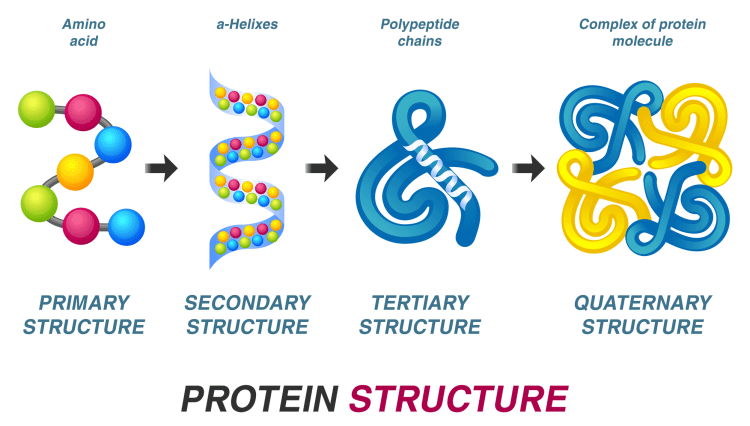
Does Alcohol Affect Muscle Growth?
Alcohol is part of many people’s life. From the occasional celebratory drink to regular weekend-long benders, a large percentage of the population enjoys consuming alcohol. Of course, some people prefer to abstain and don’t drink alcohol at all. But this article is not for them!
Whether you limit yourself to a couple of drinks a month or are a regular happy hour attendee, you probably want to know if and how drinking alcohol affects muscle growth.
The bad news is that alcohol can hurt your gains, especially when consumed regularly and to excess.
In this article, we reveal how alcohol affects muscle growth.
Alcohol and Muscle Protein Synthesis
Muscle is constantly being broken down and rebuilt. This is called muscle protein synthesis, or MPS for short. Your workouts cause increased muscle breakdown, and your diet provides the amino acids your body needs to repair and build your muscles and make them bigger and stronger. Try our Protein Intake Calculator.
So, to increase muscle size, muscle building must exceed muscle breakdown.
Unfortunately, studies show that drinking alcohol, especially in large quantities, can decrease muscle protein synthesis (1). It seems that alcohol disrupts the signaling pathways that tell the body how to build muscle. Alcohol consumption can reduce MPS by as much as 37% compared to not drinking alcohol after training.
So, while you can still drink alcohol and build muscle, your rate of progress is likely to be significantly slower. As such, you should avoid consuming alcohol after training and for the next 24-48 hours, which is when MPS tends to be highest.
Alcohol and Testosterone Production
Testosterone is one of the prime anabolic or muscle-building hormones. Working alongside human growth hormone and insulin growth factor-1, testosterone directly and indirectly drives muscle growth.
Testosterone Molecular Structure
Men produce testosterone in their testes, while women make it in their ovaries, and men typically have ten times more testosterone than women. This is why men are generally more muscular than women and find it easier to build muscle mass.
Testosterone is such a potent muscle builder that some athletes and bodybuilders use exogenous testosterone to raise their levels abnormally high. Most anabolic steroids are testosterone derivatives.
Unfortunately, alcohol is bad for testosterone production, and excess consumption can significantly lower your testosterone levels. It appears that, in large quantities, alcohol is toxic to the testes.
While 1-2 drinks won’t have much, if any, impact on your testosterone levels, consuming 4-8 drinks can lower testosterone levels by as much as 40% (2). Regular heavy drinking can even result in testicular atrophy or shrinkage.
Needless to say, this is a literal kick in the balls for muscle growth!
The good news is that this testosterone-lowering effect only lasts a day or so, meaning the occasional big night out won’t hurt your gains too much. However, frequent overconsumption of alcohol will significantly undermine your muscle-building efforts.
Related: Seven Ways to Boost Your Testosterone Naturally
Alcohol and Insulin Resistance
Insulin is another anabolic hormone that plays a crucial role in muscle building. The main function of insulin is transporting nutrients into your muscle cells. It drives both glucose and protein into your muscles, facilitating recovery and growth.
Consuming large quantities of alcohol has been shown to increase whole-body insulin resistance, essentially blocking the flow of nutrients into your muscles (3). This will impair post-workout recovery and, in turn, undermine muscle growth.
In addition, insulin resistance often goes hand in hand with fat gain. This is because the nutrients that should be entering the muscles end up being diverted to the fat cells. So, smaller muscles and a higher body fat percentage – talk about a terrible combination!
Alcohol and Cortisol
Where testosterone and human growth hormone are anabolic or muscle-building substances, cortisol is catabolic, meaning it causes muscle breakdown. Cortisol is often produced in response to stress. However, high alcohol consumption is also linked to elevated cortisol levels (4).
A little cortisol is no bad thing, as it’s one of the triggers of anabolism and muscle growth. However, too much cortisol, or prolonged elevation, will impede muscle growth.
Alcohol and Sleep
Sleep is critical for muscle growth; it’s when your body gets busy repairing the muscle damage caused by your workouts. Anabolic hormone levels tend to rise while you sleep, as does muscle protein synthesis. So, while you’re pushing out the zzzs, your body is busy repairing and rebuilding your muscles. As such, most people should try and score 7-9 hours of sleep per night.
While alcohol can make you drowsy and may even help you drop off to sleep faster, alcohol-fueled sleep is often of poor quality, disrupted, and not especially restful (5). Poor sleep can have a significant impact on your training performance, recovery, and muscle growth.
Interrupted and insufficient sleep can cause cortisol levels to rise, testosterone and growth hormone levels to fall, and insulin resistance to increase. In addition, sleep deprivation can lower your motivation to train and impair your recovery.
This all means that alcohol-fueled sleep is not good and won’t help you build muscle.
Alcohol and Motivation
Let’s face it – building muscle is hard work. It takes consistent effort and determination to push yourself through workouts that are often uncomfortable and even painful. If you aren’t motivated, you will probably miss more workouts than you complete, significantly undermining your progress.
Motivation can be intrinsic or extrinsic, but ultimately, YOU must drag your butt to the gym and do the work required to build muscle.
Regular alcohol consumption, especially when you feel hungover the next day, can severally undermine your motivation to train (6). You’re much more likely to skip workouts, and your motivation to eat well will probably also take a dive.
The bottom line is if you want to stay motivated and skip fewer workouts, you should limit your alcohol intake.
Alcohol and Nutrition
Successful muscle building has as much to do with your diet as it does your workout. Your diet supplies the calories and nutrients your body needs to fuel your training and repair and build your muscles.
While alcohol contains calories, weighing in at seven calories per gram, it doesn’t have any other beneficial nutrients. In fact, alcohol is an anti-nutrient, meaning it uses resources but doesn’t provide any.
Drinking alcohol, especially to excess, can cause you to make improper food choices and reduce your motivation to eat healthily (7). A poor diet will undermine your workouts and impede your muscle-building progress.
How Much Alcohol is Okay for Muscle Growth?
It’s often said that drinking alcohol in moderation is okay and might even be good for you. However, there are no proven benefits associated with regular alcohol consumption – sorry! That said, a couple of drinks now and then probably won’t hurt you (8).
But what does a moderate alcohol intake look like? And will it interfere with your fitness and muscle-building progress?
According to research (1), consuming 0.5g/kg of alcohol or less won’t affect muscle recovery following exercise. So, for someone who weighs 180 lbs., that’s about 2-3 standard-sized drinks. However, consuming 1.5g/kg of alcohol or 8 drinks will significantly impact muscle protein synthesis and undermine your ability to recover and grow.
So, if you want to drink alcohol without derailing your gains, you should limit yourself to no more than a couple of drinks at a time and have a few dry days per week when you don’t drink alcohol at all. You should also avoid binge drinking, where you consume multiple drinks in short succession.
Alcohol Affect Muscle Growth – Closing Thoughts
While some people prefer not to drink, alcohol can be part of a healthy diet. However, when consumed to excess, alcohol can hurt your gains and undermine your health. This is especially true for habitual and binge drinking.
Your body views and treats alcohol as a toxic substance and reacts very negatively to its presence. Consuming alcohol can impair muscle protein synthesis, reduce your testosterone, increase cortisol, and undermine your motivation to train and eat healthily. It also hammers your liver.
Building muscle is hard enough without sabotaging yourself with alcohol!
So, by all means, have the occasional drink if you wish, but if you are serious about building muscle, keep your intake to a minimum, or don’t imbibe it at all.
References:
1 – Parr EB, Camera DM, Areta JL, Burke LM, Phillips SM, Hawley JA, Coffey VG. Alcohol ingestion impairs maximal post-exercise rates of myofibrillar protein synthesis following a single bout of concurrent training. PLoS One. 2014 Feb 12;9(2):e88384. doi: 10.1371/journal.pone.0088384. PMID: 24533082; PMCID: PMC3922864. https://pubmed.ncbi.nlm.nih.gov/24533082/
2 – Vingren JL, Hill DW, Buddhadev H, Duplanty A. Postresistance exercise ethanol ingestion and acute testosterone bioavailability. Med Sci Sports Exerc. 2013 Sep;45(9):1825-32. doi: 10.1249/MSS.0b013e31828d3767. PMID: 23470309. https://pubmed.ncbi.nlm.nih.gov/23470309/
3 – Lindtner C, Scherer T, Zielinski E, Filatova N, Fasshauer M, Tonks NK, Puchowicz M, Buettner C. Binge drinking induces whole-body insulin resistance by impairing hypothalamic insulin action. Sci Transl Med. 2013 Jan 30;5(170):170ra14. doi: 10.1126/scitranslmed.3005123. PMID: 23363978; PMCID: PMC3740748. https://www.ncbi.nlm.nih.gov/pmc/articles/PMC3740748/
4 – Badrick E, Bobak M, Britton A, Kirschbaum C, Marmot M, Kumari M. The relationship between alcohol consumption and cortisol secretion in an aging cohort. J Clin Endocrinol Metab. 2008 Mar;93(3):750-7. doi: 10.1210/jc.2007-0737. Epub 2007 Dec 11. PMID: 18073316; PMCID: PMC2266962. https://www.ncbi.nlm.nih.gov/pmc/articles/PMC2266962/
5 – Park SY, Oh MK, Lee BS, Kim HG, Lee WJ, Lee JH, Lim JT, Kim JY. The Effects of Alcohol on Quality of Sleep. Korean J Fam Med. 2015 Nov;36(6):294-9. doi: 10.4082/kjfm.2015.36.6.294. Epub 2015 Nov 20. PMID: 26634095; PMCID: PMC4666864. https://www.ncbi.nlm.nih.gov/pmc/articles/PMC4666864/
6 – Shamloo ZS, Cox WM. The relationship between motivational structure, sense of control, intrinsic motivation, and university students’ alcohol consumption. Addict Behav. 2010 Feb;35(2):140-6. doi: 10.1016/j.addbeh.2009.09.021. Epub 2009 Oct 1. PMID: 19836901. https://pubmed.ncbi.nlm.nih.gov/19836901/
7 – Fawehinmi TO, Ilomäki J, Voutilainen S, Kauhanen J. Alcohol consumption and dietary patterns: the FinDrink study. PLoS One. 2012;7(6):e38607. doi: 10.1371/journal.pone.0038607. Epub 2012 Jun 12. PMID: 22719905; PMCID: PMC3373562. https://pubmed.ncbi.nlm.nih.gov/22719905/
8 – Chiva-Blanch G, Badimon L. Benefits and risks of moderate alcohol consumption on cardiovascular disease: current findings and controversies. Nutrients. 2019 Dec 30;12(1):108. doi: 10.3390/nu12010108. PMID: 31906033; PMCID: PMC7020057. https://www.ncbi.nlm.nih.gov/pmc/articles/PMC7020057/

The Ultimate Guide To Turkesterone: Results, Benefits, Side Effects, and Safety
Fitness enthusiasts constantly search for extraordinary ingredients that can take them to new heights. Turkesterone, with its claimed benefits, has caught the fancy of bodybuilders and researchers alike.
If you like staying on top of fitness industry trends, you must learn about Turkesterone. It is one of the newest supplements to make waves in the sports nutrition industry. However, not everyone is convinced of its benefits.
Some people consider Turkesterone the natural alternative to synthetic testosterone, whereas others consider it a fad. We’d go as far as to say that Turkesterone gained a cult following in a very short period because it sounds like testosterone.
Derek from the More Plates More Dates (YouTube channel) fame is credited for bringing Turkesterone to the mainstream. Plus, some of the most popular podcasters on the planet, Joe Rogan and Andrew Huberman touted Turkesterone’s muscle-building effects in one of their podcasts. Rogan’s and Huberman’s backing pushed Turkesterone’s popularity into the stratosphere.
It is believed that Turkesterone has similar effects on your hormones, such as other potent steroids like Deca and D-bal.
If you have been around the fitness scene for long enough, you would already know what happens to a supplement that claims quick, gear-like results and has celebrity backing. It sells like hotcakes. This is precisely what happened with Turkesterone.
In this article, we dive deep into Turskesterone and explore its benefits, side effects, effectiveness, and safety. We also compare it to a similar compound known as Ecdysterone and reveal the most popular Turkesterone supplement on the market. We have a lot to cover, so let’s get right into it.
What is Turkesterone?
To understand Turkesterone, we must first touch upon ecdysteroids. Ecdysteroids are steroid hormones that regulate molting and metamorphosis in insects. These occur naturally in some insects and plants. Ecdysteroids have anabolic (muscle-building) and adaptogenic (stress-busting) effects.
The star of this article, Turkesterone, is a concentrated ecdysteroid. Turkesterone is found in plants such as Ajuga turkestanica and Rhaponticum carthamoides. Although Turkesterone has been in use for a long time in traditional medicine, it has recently entered the mainstream, and its effects and results are being studied extensively.
Although this ecdysteroid’s name would make you think it originates from Turkey, that is not the case. Turkesterone is derived from Russian-Asian steppes. Furthermore, Turkesterone is present in foods like spinach, quinoa, and yams. However, the quantities are too small to make a difference.
The Turkesterone supplements on the market claim improved protein synthesis, increased muscle mass, enhanced recovery, a significant boost in endurance, and improved cardiovascular performance. To sum it up, Turkesterone is a fitness enthusiast’s dream supplement. Or is it?
A few studies concluded that ecdysteroids had performance-enhancing effects in birds and beetles [1][2]. However, the world’s leading evidence-based sports nutrition and supplementation journal, the International Society of Sports Nutrition (ISSN), discarded these claims and questioned the reliability of these studies.
Although Turkesterone has gained a cult following in a short period, more human trials are needed to establish its potential benefits, dosage guidelines, and long-term effects.
What Does Turkesterone Do?
Turkesterone manufacturers make hefty claims about its benefits. It is said to help build muscle mass, burn fat, and improve strength, stamina, endurance, recovery, energy levels, cognitive function, and overall well-being.
Turkesterone gained traction because of its claimed anabolic properties. An anabolic response usually refers to the gain of muscle protein, which helps you build muscle mass and strength. Turkesterone can help promote protein synthesis, which is crucial for muscle growth and repair.
How Does Turkesterone Work?
Turkesterone and testosterone have similar chemical structures. Turkesterone is synthesized by plants from cholesterol. Plus, cholesterol is the basis of steroid hormones found in humans.
Turkesterone is a type of phytoecdysteriod that does not bind to human steroid receptors or alter natural production; instead, it acts as an influencer to signal pathways like protein synthesis.
Hence, it is assumed that Turkersterone can be an effective replacement for anabolic steroids and wouldn’t produce side effects commonly related to gear use, such as male pattern baldness, acne, gyno, aggression, and high blood pressure.
Turkesterone Benefits
Given below are the claimed benefits of Turkesterone:
Helps Build Muscle Mass
This is the USP of this supplement. While more human trials are needed to establish its muscle-building claims, user reviews indicate that the ecdysteroid delivers on its promise. Plus, studies on animals have shown that Turkesterone might have anti-obesity and metabolic-boosting properties. [3]
Improves Recovery
Supplementing with Turkesterone aids muscle glycogen replenishment after a workout, helping kickstart your recovery process. Additionally, it enhances protein synthesis, which aids in building bigger and stronger muscles.
Boosts Exercise Performance
Turkesterone use in animals improves endurance and stamina, and power, which can boost your training performance and help you get the most out of your time. Additionally, ecdysteroids can improve your ATP replenishment, which helps shorten rest duration between sets and maintain a high training intensity for longer.
Delivers Adaptogenic (Stress-Fighting) Effects
This versatile supplement can help combat stress by supporting your mental and physical health by optimizing the stress and fatigue coping mechanism. Users report better mental clarity and reduced anxiety and brain fog while supplementing with Turkesterone.
Does Turkesterone Work?
This is the million-dollar question. If you are a fitness enthusiast, chances are you already have several supplements in your routine. You don’t want to add another until it is guaranteed to work.
Although many health and fitness social media celebrities are going gaga over Turkesterone, the thing is, there are no scientific studies to prove their effectiveness.
Furthermore, the studies that are used to boast about the effectiveness of Turkesterone are mainly on ecdysteroids, not on Turkesterone specifically. The main ingredient in these studies is ecdysterone [4]. It doesn’t end here; the ecdysteroid supplements tested in the study contained 6% of the dosage listed on the label. However, it still produced significant results.
A different study divided subjects into two groups. The first group was given placebos, and the other group used ecdysteroids. In the end, the placebo group gained 2.2 pounds more muscle than the guys taking ecdysteroids. [5]
Now, it doesn’t mean supplementing with Turkesterone has no benefits or can have negative health consequences. The Turkesterone selling companies currently lack scientific evidence to back their claims.
Turkesterone Side Effects and Safety
The reported side effects of supplementing with Turkesterone include nausea, upset stomach, lightheadedness, and other digestive issues. Notably, these side effects can be minimized by taking this supp after a meal.
Further, there are no science-backed recommended dosages for Turkesterone. If you choose to use this supp, you must stick to the dosage listed on the container. A general recommendation is to take a turkesterone supplement in dosages of 500 milligrams per day. Beginners should start with half this dose.
Problems With Turkesterone Supplements
Using Turkesterone supplements has the following limitations:
Lack of Understanding
Although many supplement companies make big claims about Turkesterone supplements, the truth is that we still lack clarity on how it breaks down and is utilized in the body. Until we have a step-by-step breakdown of how Turkestone works in our body, we cannot fine-tune it to make the most out of it.
Ecdysteroids Have a Short Life Span
Ecdysteroids such as Testosterone and Ecdysterone are eliminated rapidly from the body. Users must consume frequent big doses of these supplements to achieve noticeable results.
No Standardized Dose
Since Turkesterone lacks human trials, there is no consensus on the dosage of this supplement. At this point, each company has a different recommended dose for their products. A lack of a standardized dose can be dangerous, as overdosing on ecdysteroids can lead to toxicity.
Genetic Complexity
Ecdysteroids are generally compared to anabolic steroids. However, most steroids come with a recommended dosage. Furthermore, each individual reacts to gear uniquely because of their genetics. People on juice tweak the recommended dose to get the best bang for their buck. However, the ecdysteroids have no recommended dosage, and how they influence your genes is still poorly understood.
No Human Testing
There is very limited scientific research on Turkesterone. Plus, all these studies have been done on animals. There is no scientific evidence to prove the efficacy of Turkesterone in humans.
Best Turkesterone Supplement
Although Turkesterone lacks scientific backing, many users have been getting mind-blowing results from adding this supp to their fitness regimen. If you want to try this supplement, here is the best Turkesterone supplement on the market:
Gorilla Mind Turkesterone
Gorilla Mind Turkesterone was among the first turkesterone products on the market and had a first-mover advantage. Derek from MPMD is associated with Gorilla Mind.
This supp blends turkesterone with Hydroxypropyl-β-Cyclodextrin, making it more bioavailable than its peers. It contains 500mg of ajuga turkestanica extract, delivering a pure turkesterone content of 50mg per serving. Gorilla Mind Turkesterone comes with a money-back guarantee.
Who Should Buy Gorilla Mind Turkesterone?
Those who want turkesterone at the recommended dosage with enhanced bioavailability.
Folks that want a tried and tested turkesterone product.
Who Should Not Buy Gorilla Mind Turkesterone?
Vegans, as the capsules contain gelatin.
Folks on a shoestring budget.
SAVE NOW
Gorilla Mind Turkesterone Coupon
Gorilla Mind Turkesterone contains the most bioavailable form of turkesterone. The product comes with a 30-day no-questions-asked refund policy.
Turkesterone vs. Ecdysterone
Since most Turkesterone-selling companies use Ecdysterone studies to push their products, it would be unfair not to talk about this ecdysteroid.
Like its sibling, Ecdysterone is found naturally in some plants and insects. It is one of the most abundant and biologically active ecdysteroids found in nature. Ecdysterone is commonly found in plants such as spinach, quinoa, and various herbs. Ecdysterone supplements are also known as spinach extract, 20-hydroxy-ecdysterone, beta-ecdysterone, and alfa-ecdysone.
It can help build muscle mass, improve immune function, boost athletic performance, and enhance insulin sensitivity. Unlike Turkesterone, Ecdysterone has human trials proving its effectiveness in these fields. [6][7]
Note: The content on Fitness Volt is for informative purposes only and should not be taken as medical advice to diagnose, prevent, or treat health problems. If you’re suffering from a health issue, are pregnant, or are under 18 years old, you should consult your physician before starting any new supplement, nutrition, or fitness routine.
Wrapping Up
Although turkesterone promises several benefits, including enhanced muscle mass gains, better recovery, and a boost in physical performance, more human trials are needed to back these claims. At the same time, there are no science-backed data to prove that taking Turkesterone is dangerous.
Researchers are still exploring Turkesterone’s potential and trying to shed light on its mechanisms of action and long-term effects. Will Turkesterone receive widespread acceptance after it receives scientific backing? We will have to wait to find out.
References
Sláma K, Koudela K, Tenora J, Mathová A. Insect hormones in vertebrates: anabolic effects of 20-hydroxyecdysone in Japanese quail. Experientia. 1996 Jul 15;52(7):702-6. doi: 10.1007/BF01925578. PMID: 8698114.
Sláma K, Kodkouá M. Insect hormones and bioanalogues: their effect on respiratory metabolism in Dermestes vulpinus L. (Coleoptera). Biol Bull. 1975 Apr;148(2):320-32. doi: 10.2307/1540550. PMID: 1156606.
Das N, Mishra SK, Bishayee A, Ali ES, Bishayee A. The phytochemical, biological, and medicinal attributes of phytoecdysteroids: An updated review. Acta Pharm Sin B. 2021 Jul;11(7):1740-1766. doi: 10.1016/j.apsb.2020.10.012. Epub 2020 Oct 16. PMID: 34386319; PMCID: PMC8343124.
Isenmann E, Ambrosio G, Joseph JF, Mazzarino M, de la Torre X, Zimmer P, Kazlauskas R, Goebel C, Botrè F, Diel P, Parr MK. Ecdysteroids as non-conventional anabolic agent: performance enhancement by ecdysterone supplementation in humans. Arch Toxicol. 2019 Jul;93(7):1807-1816. doi: 10.1007/s00204-019-02490-x. Epub 2019 May 23. PMID: 31123801.
Wilborn CD, Taylor LW, Campbell BI, Kerksick C, Rasmussen CJ, Greenwood M, Kreider RB. Effects of methoxyisoflavone, ecdysterone, and sulfo-polysaccharide supplementation on training adaptations in resistance-trained males. J Int Soc Sports Nutr. 2006 Dec 13;3(2):19-27. doi: 10.1186/1550-2783-3-2-19. PMID: 18500969; PMCID: PMC2129166.
Kizelsztein P, Govorko D, Komarnytsky S, Evans A, Wang Z, Cefalu WT, Raskin I. 20-Hydroxyecdysone decreases weight and hyperglycemia in a diet-induced obesity mice model. Am J Physiol Endocrinol Metab. 2009 Mar;296(3):E433-9. doi: 10.1152/ajpendo.90772.2008. Epub 2009 Jan 6. PMID: 19126784; PMCID: PMC2660145.
Parr MK, Botrè F, Naß A, Hengevoss J, Diel P, Wolber G. Ecdysteroids: A novel class of anabolic agents? Biol Sport. 2015 Jun;32(2):169-73. doi: 10.5604/20831862.1144420. Epub 2015 Mar 15. PMID: 26060342; PMCID: PMC4447764.

